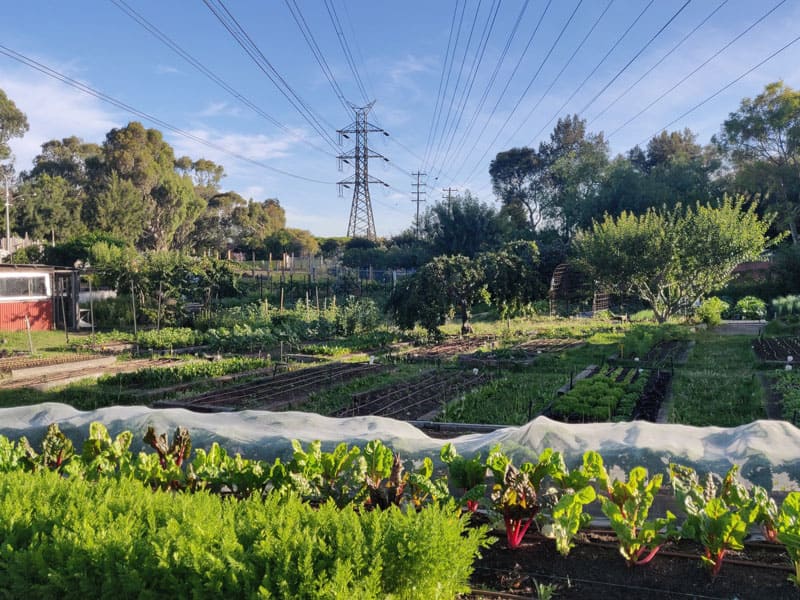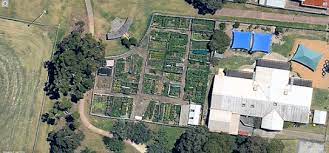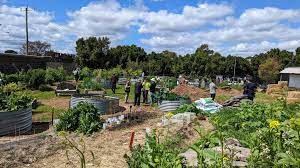 The Merri-bek Food System Strategy Extension 2020–2024 aims to further enhance the sustainability, equity, and resilience of the regional food system by building upon the successes of the initial 2017- 2020 strategy. It aligns with the core strategic goals of promoting a healthy environment, ensuring equal social and economic access to nutritious food, and establishing a thriving food culture that celebrates connection and diversity. Food systems are intricately linked to climate action, playing a critical role in greenhouse gas emissions, land use, and deforestation, making sustainable and resilient food production essential for combating climate change.
The Merri-bek Food System Strategy Extension 2020–2024 aims to further enhance the sustainability, equity, and resilience of the regional food system by building upon the successes of the initial 2017- 2020 strategy. It aligns with the core strategic goals of promoting a healthy environment, ensuring equal social and economic access to nutritious food, and establishing a thriving food culture that celebrates connection and diversity. Food systems are intricately linked to climate action, playing a critical role in greenhouse gas emissions, land use, and deforestation, making sustainable and resilient food production essential for combating climate change.The extension supports the progress of the Council’s Public Health and Wellbeing Plan and Zero Carbon Moreland Climate Emergency Action Plan 2020-2024. Furthermore, it takes a human rights-based approach by recognizing that access to nutritious and culturally appropriate food is a fundamental human right.

The Merri-bek Food System Strategy Extension 2020–2024 was propelled by the achievements and positive outcomes observed during the initial strategy period. These include the establishment of new communal food growing sites and the development of the Fawkner Food Bowls market garden through the Neighbourhood Project. The strategy has supported the growth of the Merri-bek local food network and facilitated community-led initiatives such as the Community Food Hub project. Additionally, it has fostered collaborations and partnerships, leading to the organization of food system education and cultural events. The strategy has also contributed to the establishment of the Merri-bek Food and Material Relief network and has supported the expansion and sustainability of community gardens. Furthermore, it has actively advocated for the role of local government in promoting community-based food systems through participation in relevant forums and research projects. By extending the strategy, the Council aims to build upon this momentum allowing for the consolidation of achievements, scaling up successful initiatives, and integration of food system considerations into broader policy frameworks.
In late 2020, community members involved in local food initiatives were invited to reflect on the progress made over the past three years and offer suggestions for improvement. The Food System Strategy Review and Planning session provided a platform for 20 key stakeholders from 15 Merri-Bek community food groups to share their insights. This collaborative review process ensured that the strategy extension reflects the collective wisdom and diverse perspectives of the local community.
Goals and Objectives of the Merri-bek Food System Strategy Extension 2020–2024:
1. Strengthening Local Food Systems:
The strategy extension aims to fortify local food production, support farmers and producers, and improve accessibility to locally grown food. Priority program areas include:
- Food Equity and Security: Advancing the Community Food Hub project to establish reliable funding streams and promote food justice in Merri-bek, contributing to the community’s COVID-19 recovery plan.
- Sustainable Local Food Production: Building on the strong urban agriculture traditions in Merri-bek by enhancing the operations and governance of food growing sites. This approach conserves resources, adapts to a changing climate, and contributes to the expansion of green canopy to combat urban heat island effects.
- Celebrating Food and Culture: Promoting social cohesion and inclusion through multicultural food events and shared learning, fostering community partnerships that strengthen connections.
- Education and Capacity Building: Empowering the community by providing knowledge, skills, and resources for sustainable food production. This includes free workshops, advice, and resources through the My Smart Garden sustainable gardening program, as well as support for community gardens.
- Food System Advocacy: Collaborating with other councils and stakeholders to advocate for legislative and systemic changes that enhance the local food system.
2. Promoting Circular Economy in the Food System:

The strategy extension focuses on reducing food waste, promoting food recycling and composting, and encouraging sustainable packaging and waste management practices. By embracing circular economy principles, the aim is to minimize waste and create a more resource-efficient food system.
3. Building Climate Resilient Food Systems:
Addressing the challenges posed by climate change, the strategy extension emphasizes climate-smart food production techniques, improved soil health, and the development of climate adaptation plans. These measures seek to bolster resilience and mitigate the impacts of a changing climate on food production.
Victoria is expected to experience an increase in shocks and stressors due to climate change in the coming years. Rising temperatures will lead to more extreme weather events, including an increase in extreme temperature days and severe heat waves. Moreover, there will be more frequent and severe fire danger days, longer bushfire seasons, and extended periods of drought. On the other hand, intense rainfall events could lead to flooding, disrupting various stages of the food system, from production to retail and waste generation. These climate shocks and stresses are likely to co-occur with other non-climatic shocks, compounding risks and impacts on the food system. The loss of biodiversity, intensive agricultural practices, high levels of food waste, and growing urban development will further strain natural resources and undermine the system’s long-term resilience. By promoting local production and shortening supply chains, communities can become more self-reliant and less susceptible to the disruptions caused by distant climate-related events. Local food systems offer several advantages, such as reduced transportation vulnerabilities, decreased reliance on centralized distribution networks, and a diversified range of food sources. Additionally, focusing on regional and local food production can also encourage sustainable agricultural practices and help mitigate some of the environmental stresses, such as loss of biodiversity and over-extraction of water, contributing to the overall resilience of the food system.
Moving forward, the strategy extension prioritizes sustained collaboration with stakeholders to ensure effective implementation, monitoring, and evaluation of initiatives. Strategic opportunities will be identified, and resources and partnerships will be leveraged creatively to maximize investment and impact. Integration of food system considerations into other Council areas will be emphasized, fostering an integrated and enhanced approach. Community engagement will remain central, providing residents with education, participation, and empowerment opportunities in shaping the local food system.